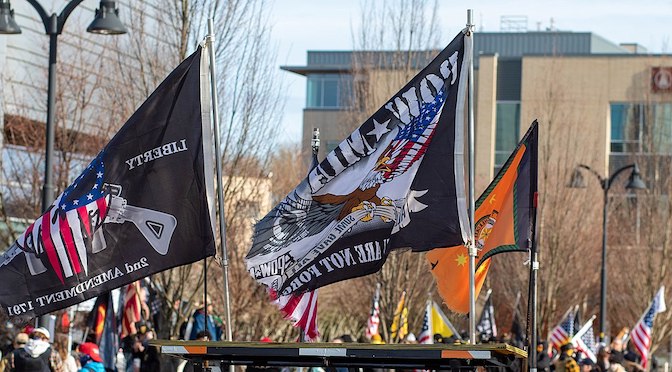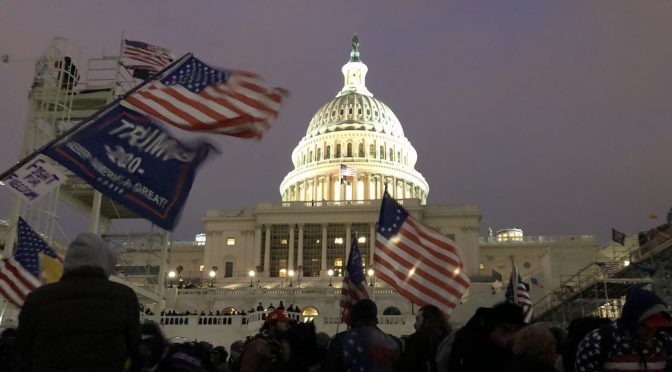Elizabeth Goitein and Joseph Nunn argue that the Insurrection Act is one of the most powerful and wide-ranging authorities available to the President of the United States. The Act authorizes the president to deploy US armed forces and the militia to suppress insurrections, quell civil unrest and domestic violence, and otherwise enforce the law in… Continue reading An Army Turned Inward: Reforming the Insurrection Act to Guard Against Abuse
Tag: Capitol Insurrection 2021
Introduction to the Special Online Issue on the 2021 Capitol Insurrection
January 6, 2021, was supposed to be the day that Joe Biden became the congressionally certified winner of the 2020 presidential election. Instead, January 6 will be remembered as the day a violent mob stormed the U.S. Capitol. As the mob easily overcame inadequate security, members of Congress and staff feared for their lives. By… Continue reading Introduction to the Special Online Issue on the 2021 Capitol Insurrection
The Attack on the Capitol Calls for a Measured Response
By Emily Berman There are many indisputable facts about violent and deadly incursion into the Capitol building on January 6th. It is beyond debate that the fiasco included multiple criminal acts. Nor is there any question that it represents a colossal security failure on the part of those whose mission is to safeguard the premises… Continue reading The Attack on the Capitol Calls for a Measured Response


